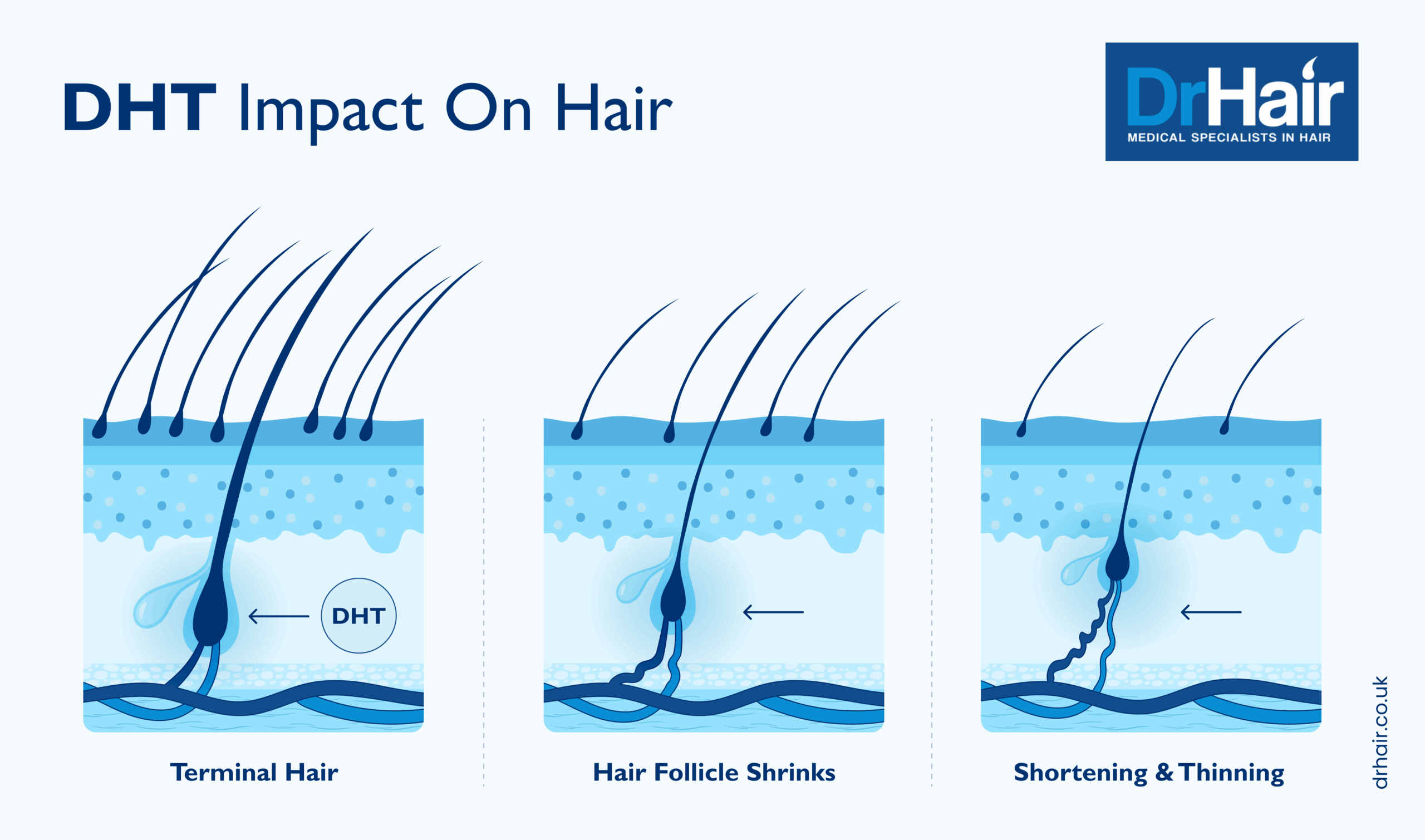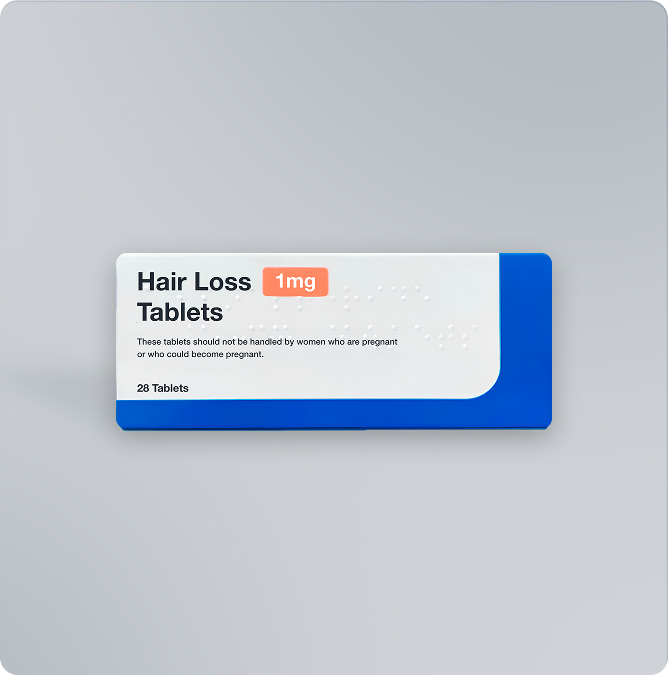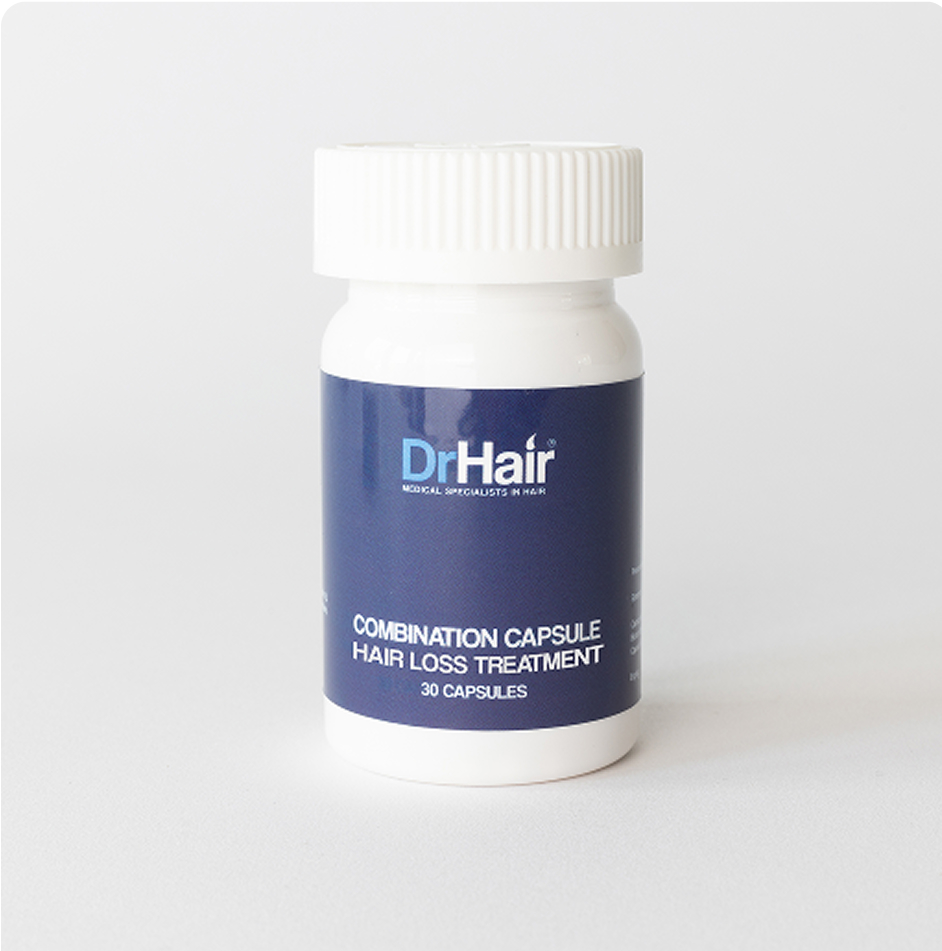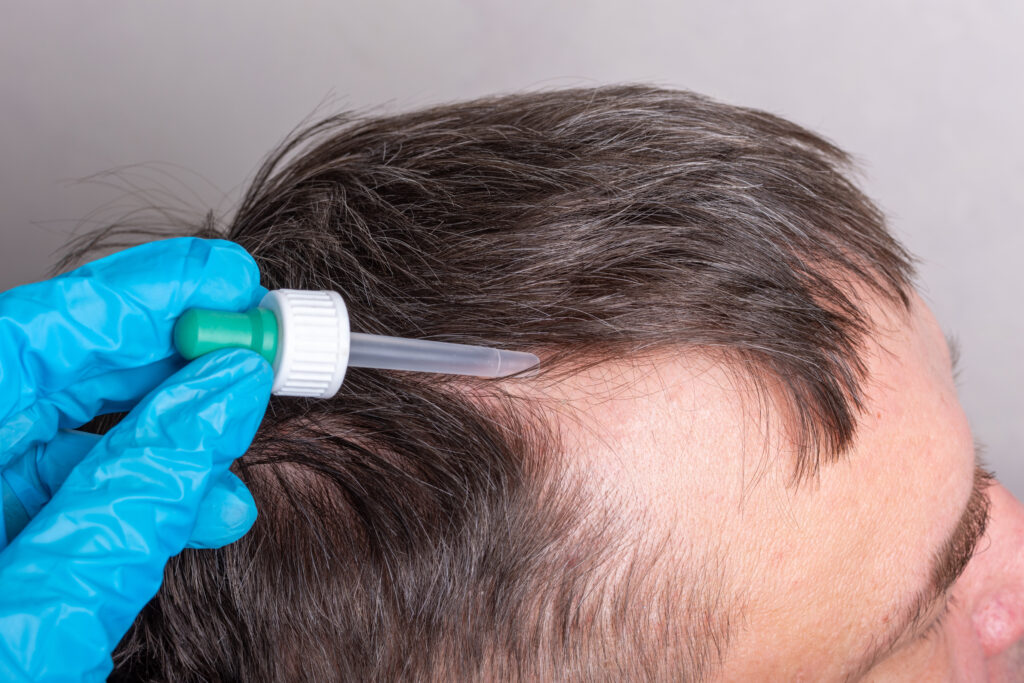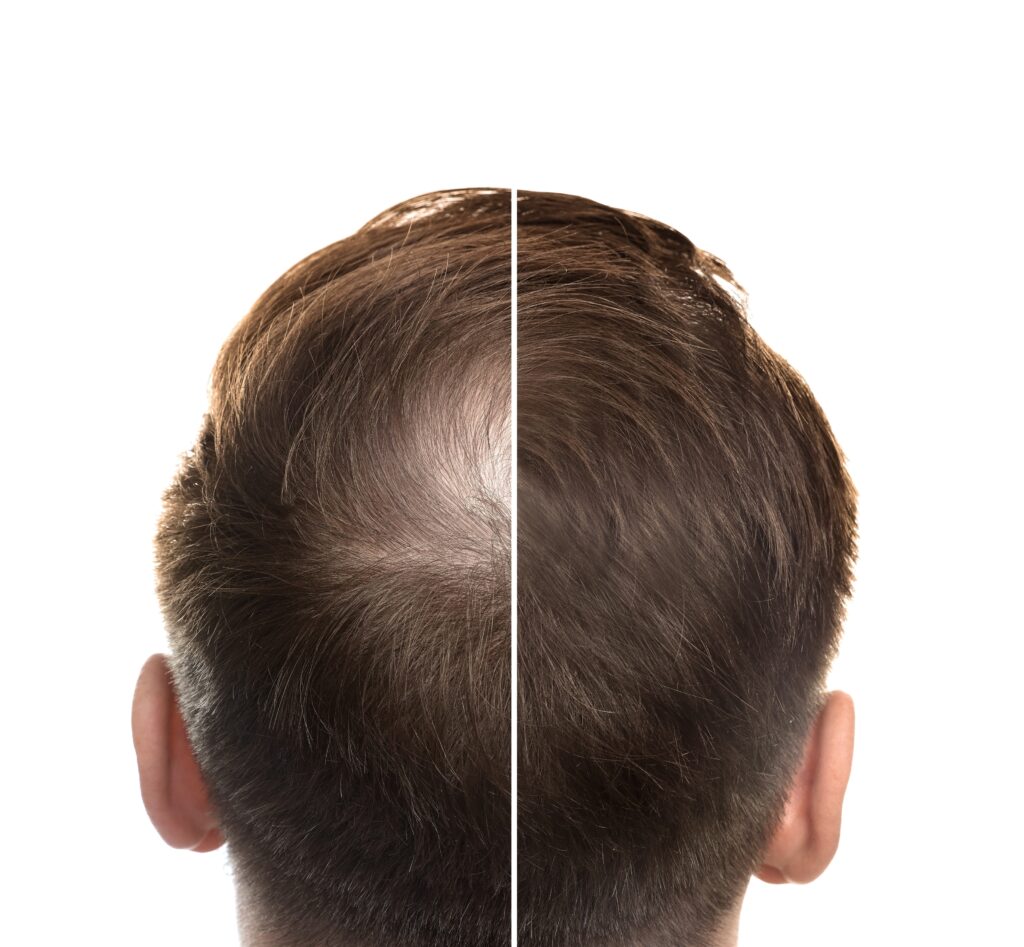Dutasteride is a drug that’s available off-label as a treatment for male pattern baldness. While it works in a similar way to finasteride, it’s not licensed for the same purpose in the UK. That said, doctors and pharmacists can prescribe dutasteride as a hair loss treatment if it’s suitable for you. More than a third of hair transplant surgeons always or often recommend dutasteride to their patients [1].
So what exactly is dutasteride, and how does it help with hair loss? Discover who can use dutasteride, how long it takes to see results, whether it’s superior to other treatments and what side effects to expect.
Table of Contents
- What is dutasteride and how does it work?
- Does dutasteride work for all types of hair loss?
- Who can and can’t take dutasteride?
- How to take dutasteride for best results
- When will I see results from dutasteride?
- What are the side effects of dutasteride?
- Is dutasteride better than finasteride?
- Does dutasteride work for hair loss?
What is dutasteride and how does it work?
Dutasteride is a drug known as a 5 alpha-reductase (5AR) inhibitor. It works by reducing activity of the 5AR enzyme, which converts testosterone to dihydrotestosterone, or DHT.
DHT is a hormone that contributes significantly to the development of male pattern baldness. It binds to receptors in your hair follicles, causing them to shrink over time. As the follicle shrinks, it becomes less able to produce healthy hair. Eventually it stops producing hair altogether, leading to progressive baldness.
Dutasteride limits the activity of all three known types of the 5AR enzyme. This makes it a highly effective drug for reducing DHT production at a systemic level. Because your DHT levels are lower, there’s less DHT to bind to the follicles, allowing your hair to continue growing.
Does dutasteride work for all types of hair loss?
Dutasteride works for male and female pattern hair loss (although women are routinely advised not to take dutasteride, due to the risk of adverse effects).
Unfortunately, it’s not indicated for use for other types of hair loss (such as telogen effluvium or alopecia areata) as it doesn’t tackle the underlying cause of these issues.
Who can and can’t take dutasteride?
Dutasteride is safe for many male patients who are affected by male pattern baldness. However, this drug has a significant impact on your hormones, so it’s not suitable or safe for everyone.
Women should avoid taking dutasteride as it can affect the menstrual cycle. Pregnant women must take particular care to avoid dutasteride exposure, as it may cause problems with a developing foetus [2].
Other people who may be advised to avoid dutasteride include those:
- Who are trying to conceive, as small amounts of finasteride may be transferred in the semen
- With allergies or sensitivities to dutasteride or any ingredients in the tablets
- Who are at higher risk of developing prostate cancer
- With liver disease
Make sure to accurately disclose your medical history to anyone prescribing dutasteride to you, so they can ensure the treatment is safe and appropriate.
How to take dutasteride for best results
Dutasteride is an oral medication designed to be taken regularly. Because it’s available off-label for male pattern baldness, there isn’t a standard dosage.
According to the International Society of Hair Restoration Surgeons, most physicians advise taking 0.5 mg of dutasteride twice a week to reduce DHT levels sufficiently [3]. Taking dutasteride two or three times per week is usually enough to see hair growth improvements [4].
When will I see results from dutasteride?
It’s normally around 3-6 months before you’ll start seeing results from dutasteride [2]. You’ll need to continue taking dutasteride regularly to maintain these results and continue to improve your hair. If you stop taking dutasteride, you’re likely to lose any hair you’ve gained (especially if you don’t replace it with an alternative treatment).
What are the side effects of dutasteride?
Possible side effects of dutasteride include:
- Reduced libido
- Erectile or ejaculation dysfunction
- Mood changes
- Weight gain
- Allergic reactions
Because dutasteride affects your hormones, it can result in changes to your sexual and mental health [5]. Researchers note that these side effects are generally reversible [5].
If you have a pre-existing condition that affects your sexual function or mental health, speak to a doctor before taking dutasteride. They may advise you on alternative medications that are better suited to your situation.
Is dutasteride better than finasteride?
Studies have indicated that dutasteride can be more effective than finasteride at limiting hair loss from male pattern baldness [5, 7]. This is likely due to the fact that dutasteride inhibits all three types of 5AR enzyme, while finasteride only affects two.
Research suggests that taking a lower dose of dutasteride less often (0.5 mg of dutasteride three times a week) may be more effective than taking 1 mg of finasteride every day, with a similar incidence rate of sexual side effects [4].
That said, finasteride is a first-line treatment for male pattern baldness, whereas dutasteride isn’t. A doctor or pharmacist is more likely to prescribe dutasteride in cases where finasteride has failed to produce the desired results.
Does dutasteride work for hair loss?
Dutasteride is a highly effective treatment for male pattern baldness. If first-line treatments don’t help, dutasteride may be considered as a next step.
Read more hair loss treatment insights to discover your options for slowing hair loss and improving growth.



